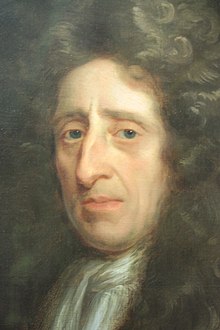
Back نظرية العمل للملكية Arabic Teoría de la propiedad-trabajo Spanish Teoria del lavoro di acquisto della proprietà Italian Teoria da propriedade-trabalho Portuguese உழைப்புச் சொத்துக் கோட்பாடு Tamil

 |
| Part of a series on |
| John Locke |
|---|
|
Works (listed chronologically) |
| People |
| Related topics |
The labor theory of property, also called the labor theory of appropriation, labor theory of ownership, labor theory of entitlement, and principle of first appropriation, is a theory of natural law that holds that property originally comes about by the exertion of labor upon natural resources. The theory has been used to justify the homestead principle, which holds that one may gain whole permanent ownership of an unowned natural resource by performing an act of original appropriation.
In his Second Treatise on Government, the philosopher John Locke asked by what right an individual can claim to own one part of the world, when, according to the Bible, God gave the world to all humanity in common. He answered that, although persons belong to God, they own the fruits of their labor.[1] When a person works, that labor enters into the object. Thus, the object becomes the property of that person; however, Locke held that one may only appropriate property in this fashion if the Lockean proviso held true, that is, "... there is enough, and as good, left in common for others".[2]
- ^ Second Treatise of Government, II, Section 6.
- ^ Locke, John (1690). Second Treatise of Government. pp. Sect. 27.